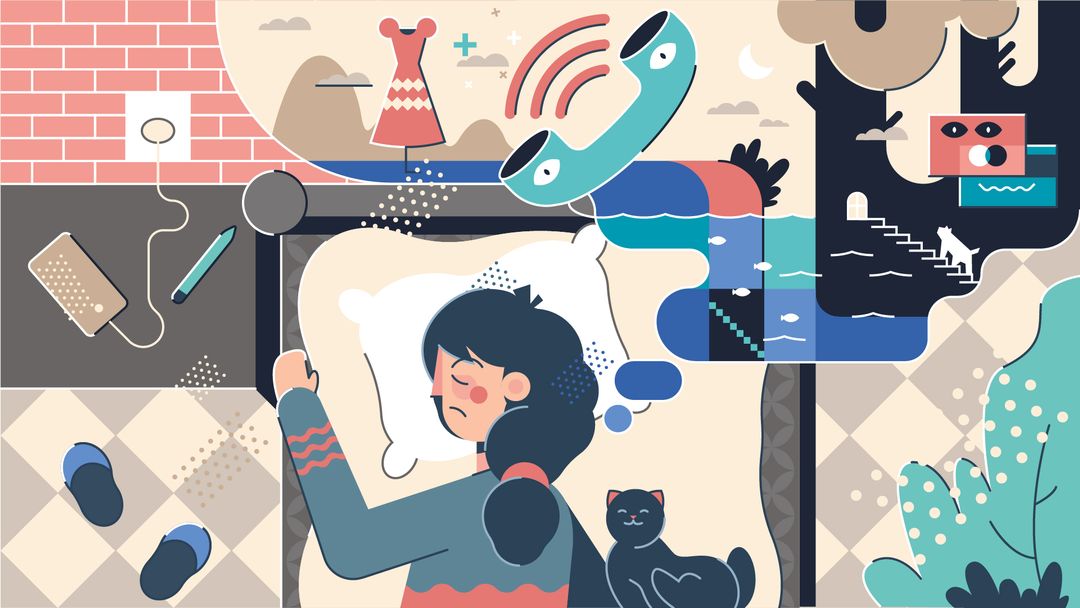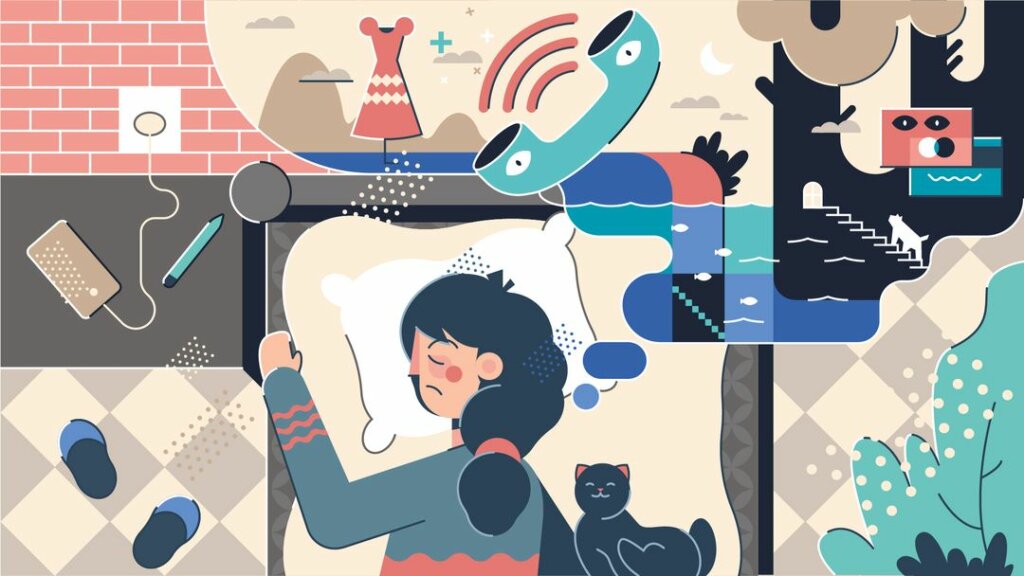It’s never a good feeling seeing your child or partner have a seemingly intense nightmare, especially if they start screaming, kicking, and flailing their arms. In most cases, this is because of nothing more than just a really bad dream, and they’ll calm down quickly once awake. But if it happens with worrying regularity, and especially if it often involves sleepwalking, your loved one could have a sleep disorder.
So how do you know for sure if it’s night terrors, or just a series of really awful nightmares? And if it happens regularly, what can you do to help manage it?
Can’t sleep and don’t know why? Check out our Complete Guide to Sleep Disorders with symptoms, causes, and treatments on over twenty types of sleep disorders.
Quick Facts – Night Terror or Sleep Terror
Frequency: Around 2.2% of adults*, 6.5% of children aged 4-12
Risk Factors: Family history of sleep terrors and sleepwalking, being female, emotional tension or stress, fever (in children), pre-existing sleep or anxiety disorders, alcohol use
Nature: Mental
Treatment: Stress reduction, counseling or psychotherapy, anticipatory awakening, prescription medication (e.g. diazepam), hypnosis, home and lifestyle adjustments
Symptoms – Night Terror or Sleep Terror
Night terrors or sleep terrors causes someone to have episodes of intense panic and fear during the first hours of sleep. Night terror episodes are often confused with nightmares because they’re similar in a lot of ways. However, unlike nightmares, sleep terrors can potentially be physically dangerous, as it often involves sleepwalking and thrashing around while asleep. Worse, it can also lead to aggressive behavior.
The following are some of the common symptoms of sleep terrors.
- Thrashing, flailing, and/or screaming in bed during the first hours of sleep, with little to no recollection of what happened upon waking
- Unconsolable distress and resistance to being woken up during a night terror episode
- Intense feelings of fear, worry, or panic
- Cold sweats or tremors
- Increased heart rate, dilated pupils
- Sleepwalking
- Possible aggressive behavior when forcibly woken up or restrained during a sleep terror episode
Causes – Night Terror or Sleep Terror
Many studies cite family history as the most common factor in the occurrence of sleep terrors among both children and adults. However, this is not the sole determinant of how and why night terrors happen. Here are some of the most oft-cited factors linked to sleep terrors in children and adults.
- Family history – Someone in the family has a history of sleepwalking, night terrors, or other sleep disorders.
- Sleep deprivation
- Alcohol use
- Fever (in children)
- Travel and/or sleeping in unfamiliar places and conditions
- Excessive caffeine intake
- Stress
- Pre-existing psychiatric conditions that affect the mood (e.g. bipolar disorder, anxiety)
- Other sleep disorders such as sleep apnea
Treatment – Night Terror or Sleep Terror
If your child is experiencing night terrors, the good news is that this is fairly typical for children aged 10 and below. Most cases of sleep terrors in kids do not require any medical treatment and is something they naturally outgrow as they get older. In addition to providing immediate comfort, sleep terrors in both children and adults can be managed with the following treatment options:
- Stress reduction – Managing emotional, mental, and environmental stress helps decrease the risk of night terrors.
- Home, bedroom, and lifestyle adjustments – Make the bedroom more calming and soothing and ensure that the environment is safe if your child sleepwalks. For adults, regulate the consumption of alcohol and caffeine.
- Counseling and/or psychotherapy
- Anticipatory awakening – Waking the person up in the first 60-90 minutes of sleep significantly cuts the risk of a sleep terror episode occurring.
- Prescription medication – Specific drugs can address underlying conditions for night terrors, and in severe cases, sedatives can decrease risk of physical injury.
How You Will Overcome Night Terror or Sleep Terror
If your child experiences a night terror episode, don’t panic! Instead, immediately cuddle, comfort, and reassure your child that they are safe. According to a research, the night terrors often go away on their own as a child gets older.
For adults, the easiest and most immediate thing you can do is to lower your stress levels and make sleep and lifestyle adjustments. Go easy on the coffee and find a bedtime activity that soothes and calms you.
If you think there’s an underlying condition causing your night terrors, consult your GP, who can then refer you to a sleep specialist. You don’t have to wake up scared, confused, and in a cold sweat every night. You can wake up just like the rest of the adult population—reaching for the stupid alarm and getting up to face a new day.
Did you know?
This article is part of our Complete Guide to Sleep Disorders – A resource that will help you get your quality sleep back. Click here to learn more about sleep disorders, their causes, symptoms and how to overcome them.



